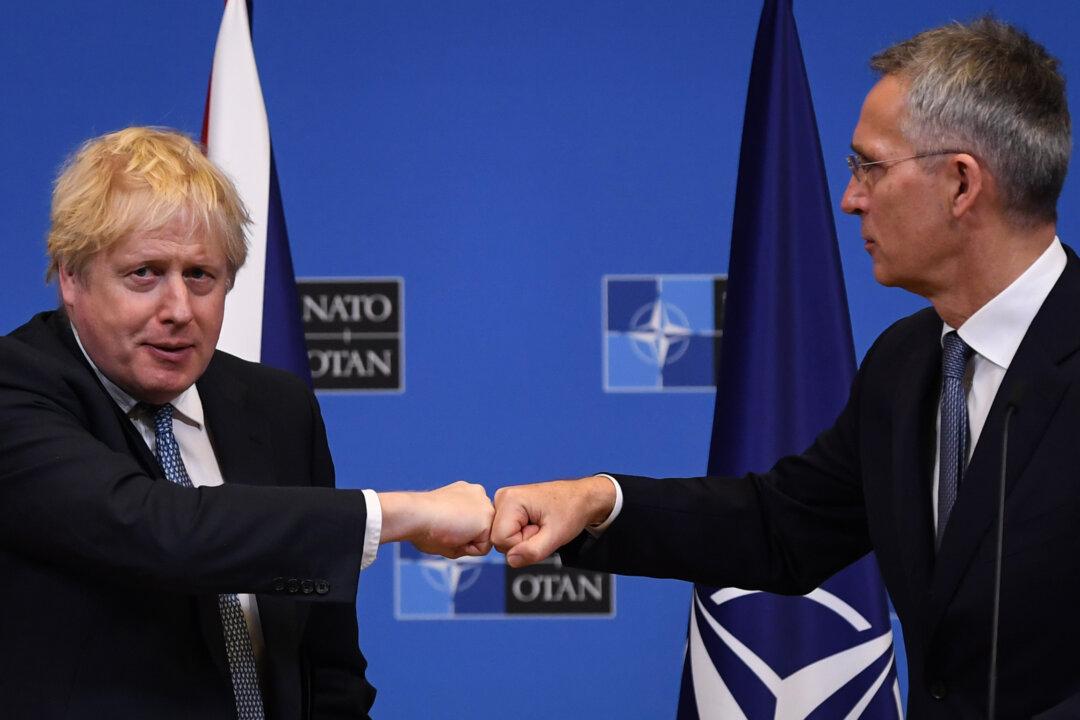Europe is facing the “most dangerous moment” in its “biggest security crisis” in decades as Russia amasses troops on its border with Ukraine, according to UK Prime Minister Boris Johnson.
More than 100,000 Russian troops are believed to be stationed on the country’s border with Ukraine, but the Russian government has insisted that it has no plans to invade. Speaking at a joint press conference with NATO Secretary-General Jens Stoltenberg in Brussels on Feb. 10, Johnson said he doesn’t think the Russian government has made a decision on whether to invade Ukraine.





